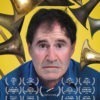Unraveling Mind
Written by Chris Cooke | Posted by: Anonymous
Jafar Panahi’s "Crimson Gold" begins in the middle of a foiled bank robbery, the thief and his victim obscured by shadows. But when things go wrong, there are no sensational Hollywood tricks or clever escapes. For Pahani’s film is gritty and realistic, entirely unsentimental. The film, showing at Boston’s Museum of Fine Arts as part of the current Festival of Films from Iran, evokes the envy and eventual despair — brought about by economic disparity — that can lead to violent crime.
The harrowing opening scene serves as a frame for the remainder of the film, which details the events that lead up to the robbery. Ali (Kamyar Sheisi), young and chatty, and Hussein (Hossain Emadeddin), old, taciturn, and overweight, deliver pizzas on mopeds for a living. Hussein, who is engaged to Ali’s sister (Azita Rayeji), has had some medical problems, for which he still takes cortisone. He hardly recognizes himself in the mirror, and he is growing increasingly disenchanted with his lot in life. He sees wealth all around him, and it offends him to the core. Ali, meanwhile, has found a handbag containing a receipt for expensive jewelry. The buddies visit the jeweler just to check out the goods, but are snubbed by the class-conscious jeweler. Thus the seeds of anger are planted.
Panahi masterfully depicts sequence after sequence in which Hussein is subtly or not-so-subtly made aware of his own powerlessness and the abundance of unattainable wealth around him. There is not much of a plot, per se, just an overwhelming accumulation of events and attitudes that seem to lead inevitably to disaster. The mood of the film is dark, but there are moments of bitter humor. Hussein, brooding and silent, comes across as a wounded angel, badgered into hatred, becoming quite an ominous figure. The fact that we already know his fate only heightens the sense of despair that permeates the film. The screenplay is by famed Iranian director Abbas Kiarostami ("A Taste of Cherry"), based on true events. A chilling portrait of an unraveling mind.











